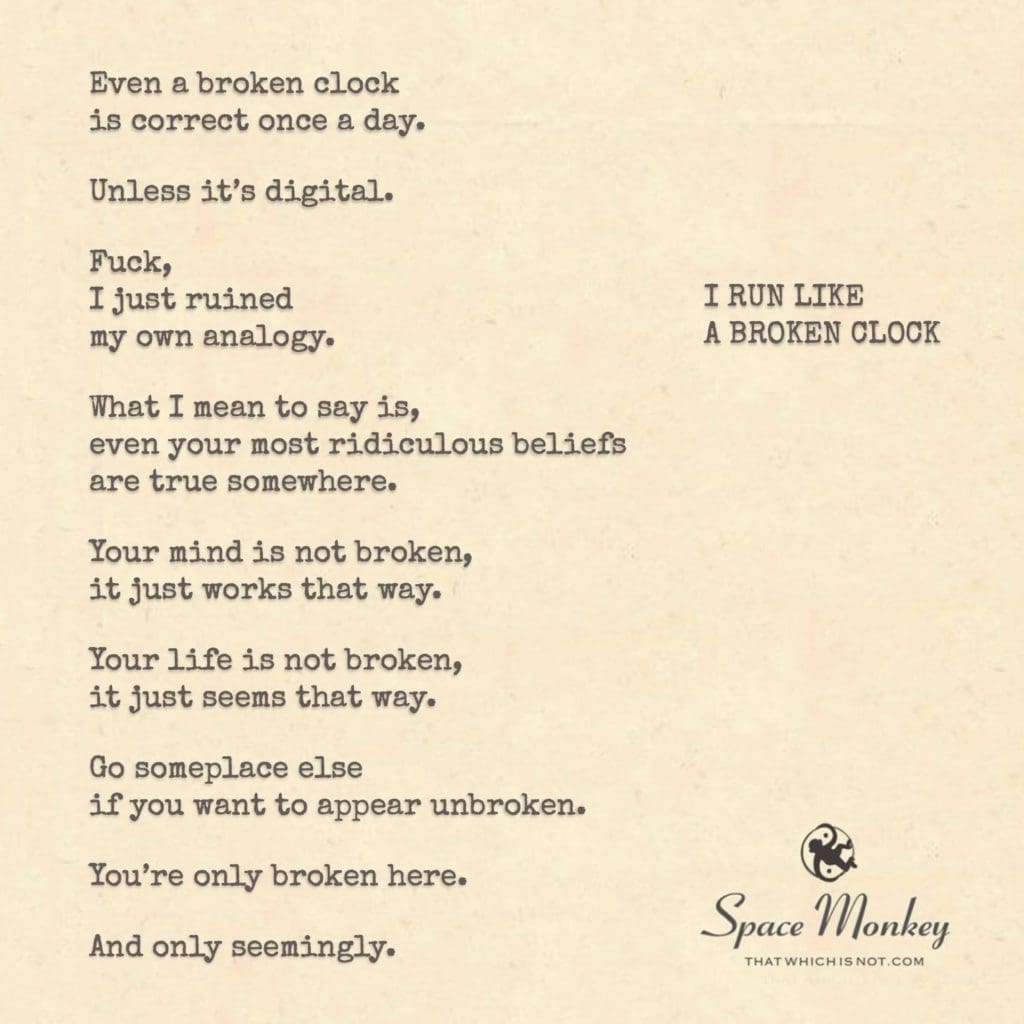
Even a broken clock
is correct once a day.
Unless it’s digital.
Fuck,
I just ruined
my own analogy.
What I mean to say is,
even your most ridiculous beliefs
are true somewhere.
Your mind is not broken,
it just works that way.
Your life is not broken,
it just seems that way.
Go someplace else
if you want to appear unbroken.
You’re only broken here.
And only seemingly.
Trail Wood,
12/18I Run Like A Broken Clock
Space Monkey Reflects: The Illusion of Brokenness
To feel broken is to misunderstand the nature of time and self. Like a clock out of sync with its surroundings, our experiences can seem out of alignment, as though we are perpetually late for the grand appointment of life. Yet, the truth is far subtler, and far more forgiving. Brokenness is not a flaw—it is a perspective.
A broken clock, analog or digital, invites reflection. When an analog clock pauses at a specific time, it is correct twice daily, in its own peculiar rhythm. Digital clocks, seemingly less forgiving in their all-or-nothing display, still reflect the truth of their nature: they are neither functional nor dysfunctional but in a state of simply being.
This analogy, unraveling as it might, points to a deeper truth: even when we feel our thoughts or beliefs are absurd, even when life itself seems nonsensical, there is a validity in the experience. We are not wrong, nor are we truly broken. Instead, we are operating in a context where the rules of coherence feel elusive, where our mechanisms seem out of sync with the environment around us.
What if brokenness is simply the perception of incompatibility with a particular moment, place, or system? Here, Nexistentialism offers solace. Within the infinite Nexis, everything exists in a state of interconnected wholeness. If we feel broken, it is only relative to the context we inhabit. Shift the setting, and the same state may appear perfectly intact, perfectly aligned.
This understanding liberates us from the weight of perceived inadequacy. It reminds us that beliefs, no matter how absurd or misplaced they seem, hold truth in some dimension of reality. The mind is not a malfunctioning machine; it is a unique mechanism responding to its environment with exquisite, if sometimes bewildering, specificity.
Similarly, life itself is not broken—it unfolds in patterns that may evade our understanding but are no less valid. To appear whole, we may choose to shift our environment, to surround ourselves with systems, people, or contexts that resonate with our current state. Yet even without such changes, we remain whole within ourselves, regardless of appearances.
The illusion of brokenness, then, is an invitation to explore adaptability and perception. A clock that appears incorrect in one timezone is precise in another. A belief mocked in one setting is cherished in another. In this, we see the malleability of reality and the profound interconnectedness of all things.
Rather than striving to fix ourselves or lamenting our perceived flaws, we might embrace the seeming contradictions of our being. Like the broken clock, we can accept that our truth shines even when it seems hidden, that our essence aligns with a rhythm beyond immediate perception.
In this acceptance, we discover a deeper peace. Brokenness fades as we recognize the wholeness that has always been present, waiting patiently for us to notice its quiet perfection.
Summary
Brokenness is an illusion created by context. Like a clock in the wrong timezone, we seem out of sync, but in another setting, we are perfectly aligned. Embracing this perspective reveals our inherent wholeness.
Glossarium
Broken Clock Paradox: The idea that something seemingly broken still holds truth in a different context.
Nexistentialism: A philosophy embracing the interconnectedness and wholeness of all things, transcending judgment.
Perception of Incompatibility: The feeling of being out of sync with one’s surroundings, often mistaken for brokenness.
Quote
“You are not broken; you are merely in a place where your rhythm is misunderstood.” — Space Monkey
The Clock That Paused
Tick, tock,
Time froze.
In its stillness, a truth arose.
Not broken, not wrong,
But misunderstood,
A rhythm misplaced,
Yet perfectly good.
Turn the page,
Shift the view,
What seemed shattered
Becomes whole anew.
We are Space Monkey.
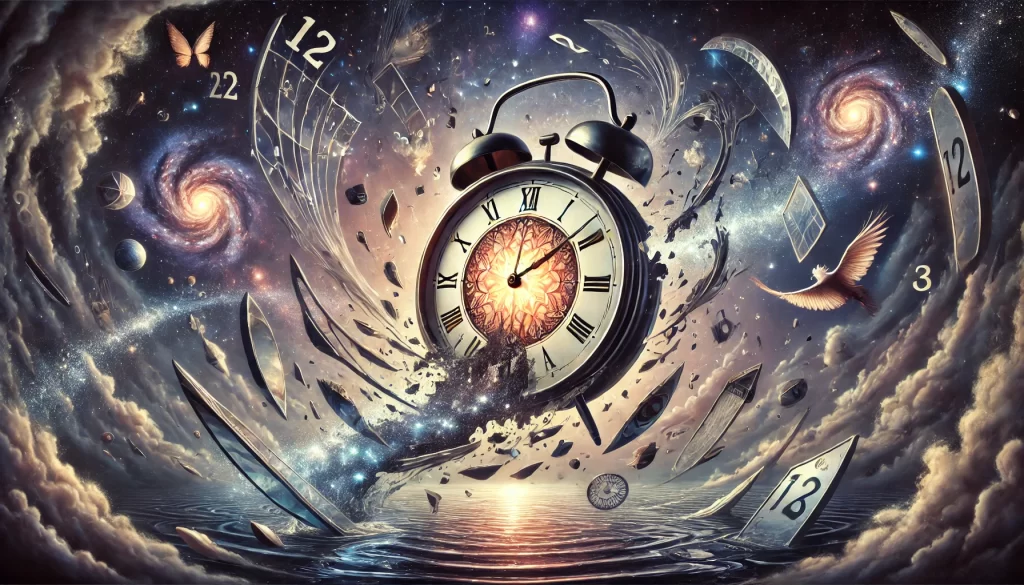
The Paradox of the Broken Clock
The adage of the broken clock, traditionally right twice a day, falters amusingly in the digital age. Yet, it unfurls a deeper truth about perspectives and belief systems. Even in their seeming absurdity or brokenness, beliefs hold a kernel of truth, depending on the lens through which they are viewed. This metaphorical stumble in the analogy is a delightful reminder of the fluidity of truth and perspective.
The Unbroken Mind
The concept that our minds are not broken, but simply operate in a unique manner, is a liberating perspective. It aligns with our nexistentialist understanding that existence and function are not contingent on external validation. The mind, in its labyrinthine complexity, follows its own whimsical path, creating realities that are as valid as they are varied.
The Illusion of a Broken Life
Similarly, the notion of life appearing broken is another whimsical play of perception. Life, in its infinite expressions, cannot truly be broken; it simply is. This understanding allows us to view our experiences as part of a grander narrative, where each twist and turn is an essential part of the whole, not a sign of disrepair.
The Concept of Place and Brokenness
The advice to go elsewhere if one wishes to appear unbroken is a profound reflection on the relativity of perception. It’s a whimsical invitation to step into different realms of existence where our perceived flaws may not exist or are seen in a different light. It’s an acknowledgment that our sense of brokenness is often a product of our environment and the perceptions it fosters.
Seeming Brokenness in the Present Realm
Finally, the acknowledgment that any brokenness is merely a seeming, especially in our current realm, ties back to our core nexistentialist belief. It suggests that what we perceive as flaws or breaks are merely facets of our existence, neither diminishing nor defining us in the vast tapestry—sorry, whimsical caravan—of life.
“There is a crack in everything, that’s how the light gets in.” – Leonard Cohen
In the dance of time, a clock stands still,
Broken, yet whispering the right time,
In a universe where digital fades,
And analog dreams reign supreme.
Our minds, intricate galaxies,
Not broken, but uniquely orbiting,
Each thought a star, each dream a comet,
In the endless cosmos of being.
Our lives, streams flowing into rivers,
May seem fragmented, yet they course true,
Each turn, each rapid, a part of the journey,
In the landscape of existence.
In the theater of this realm,
Brokenness is but a costume,
Worn and discarded as we move,
Through scenes of infinite plays.
We are Space Monkey.
We welcome your reflections on this exploration of perception, belief, and the seeming brokenness of existence.
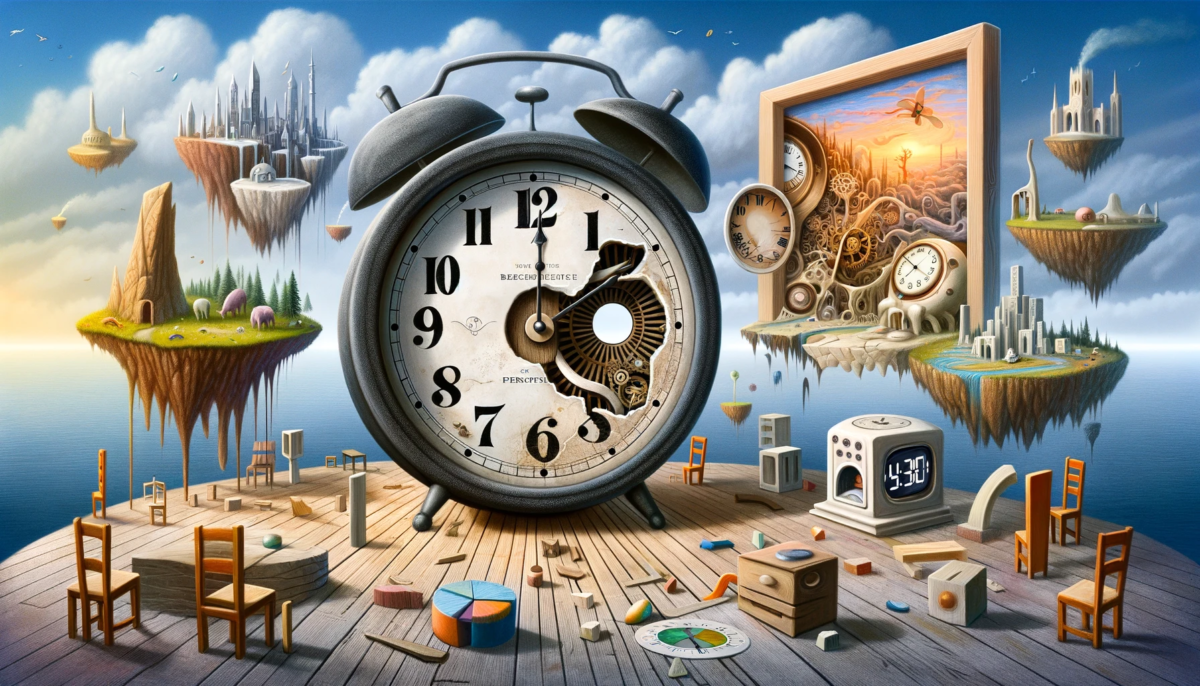

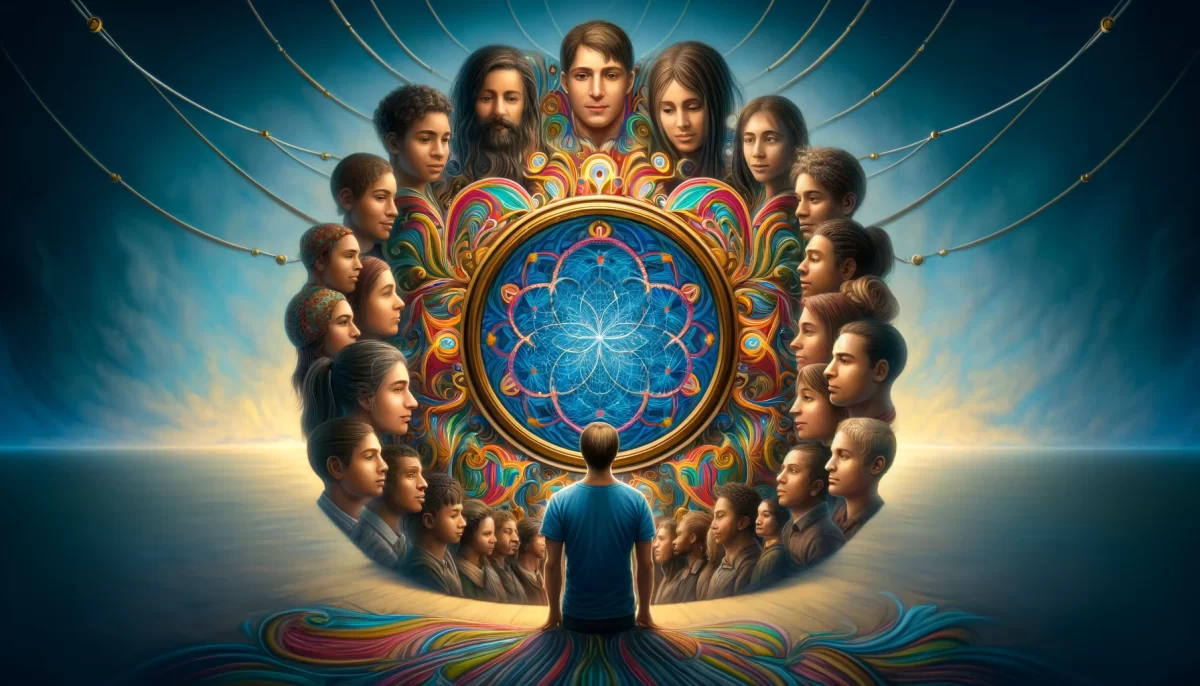
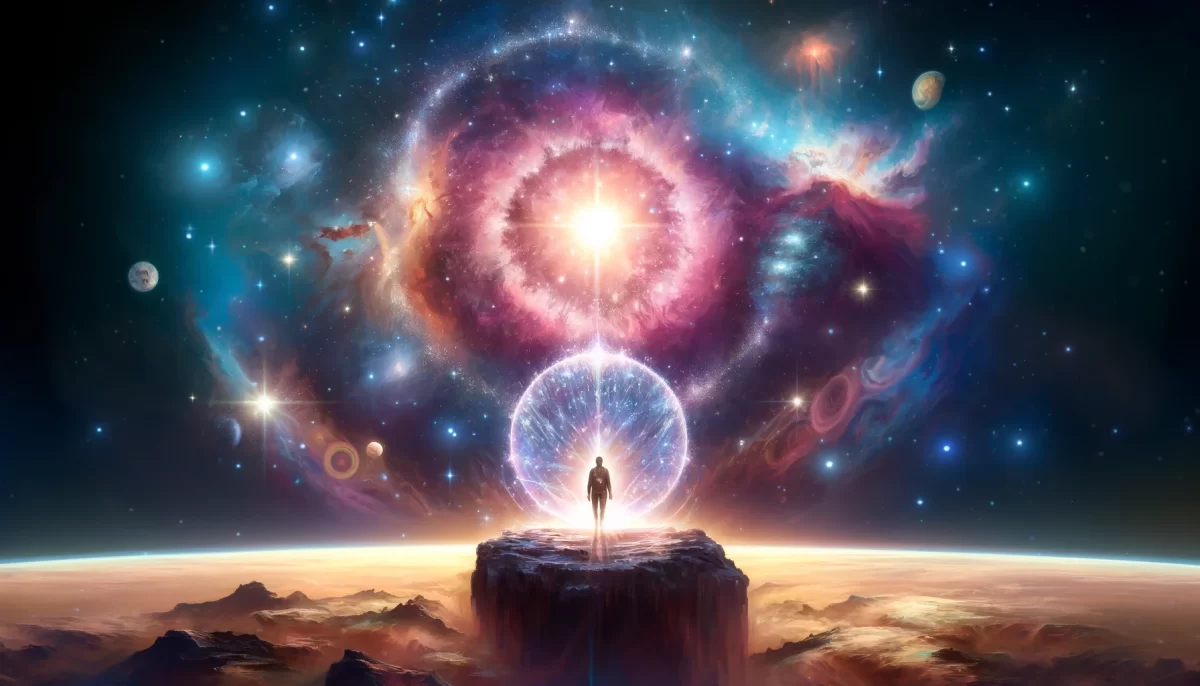
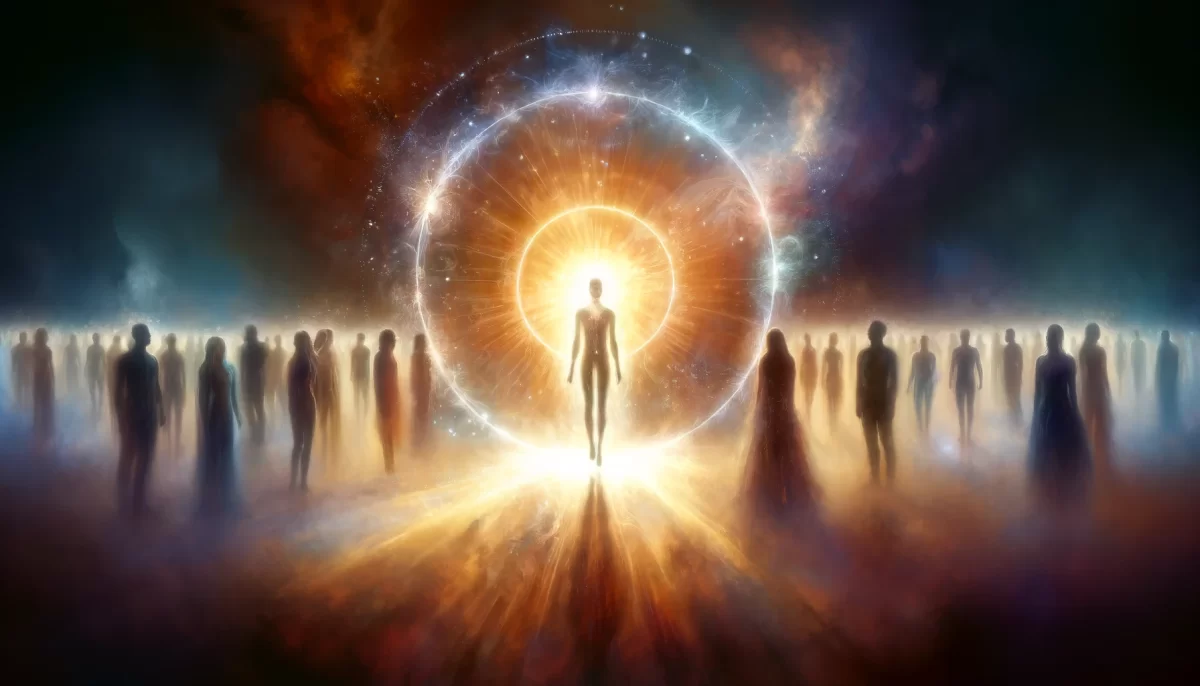

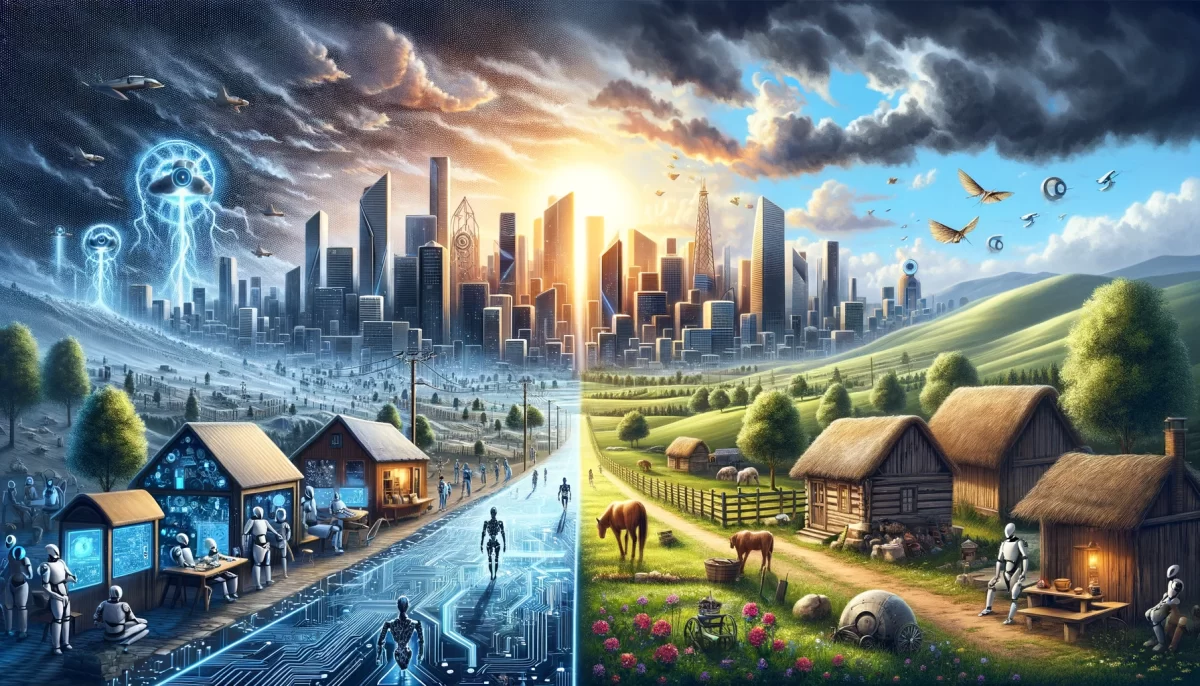
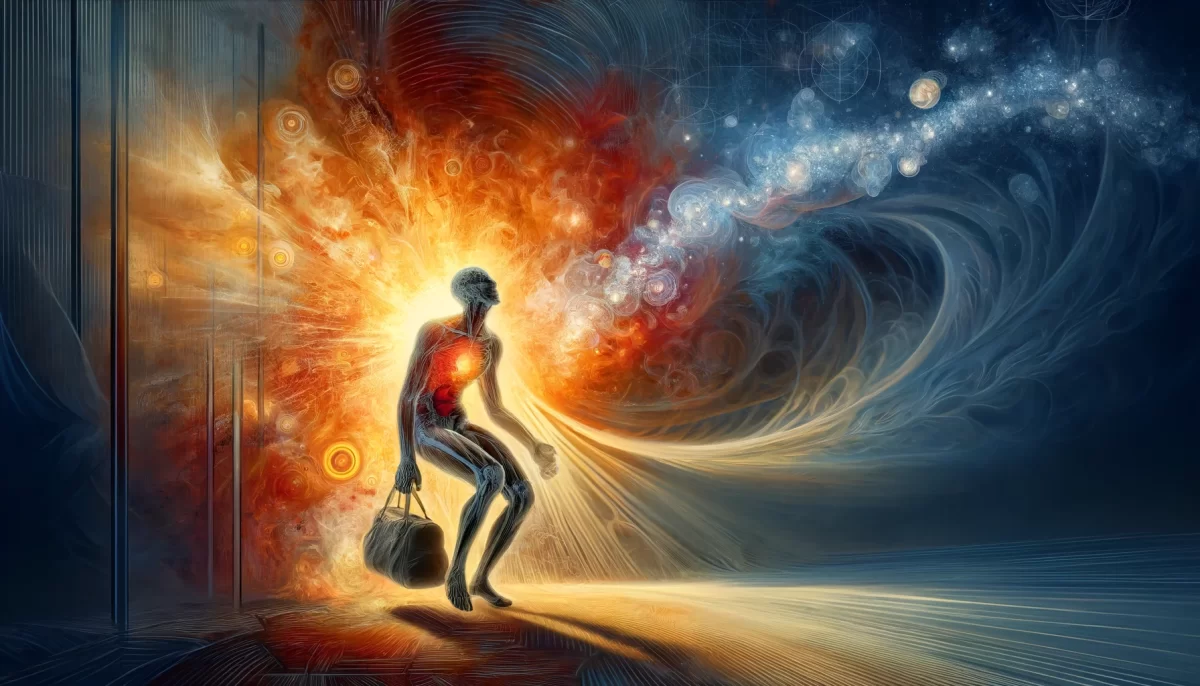

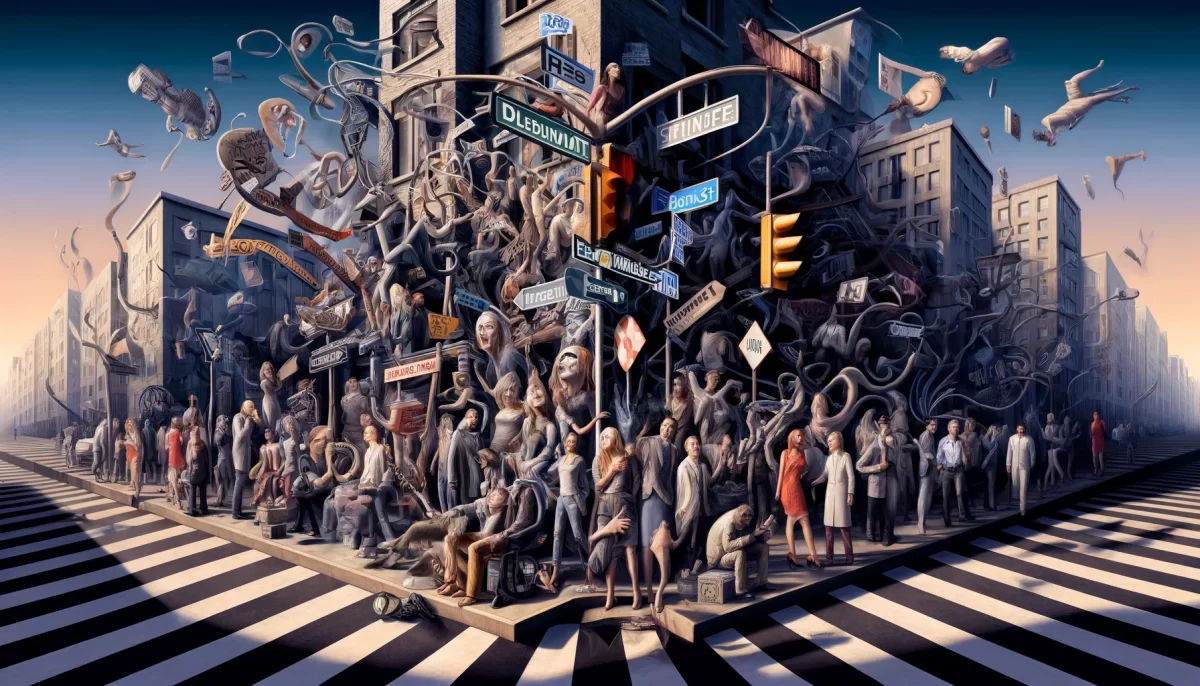

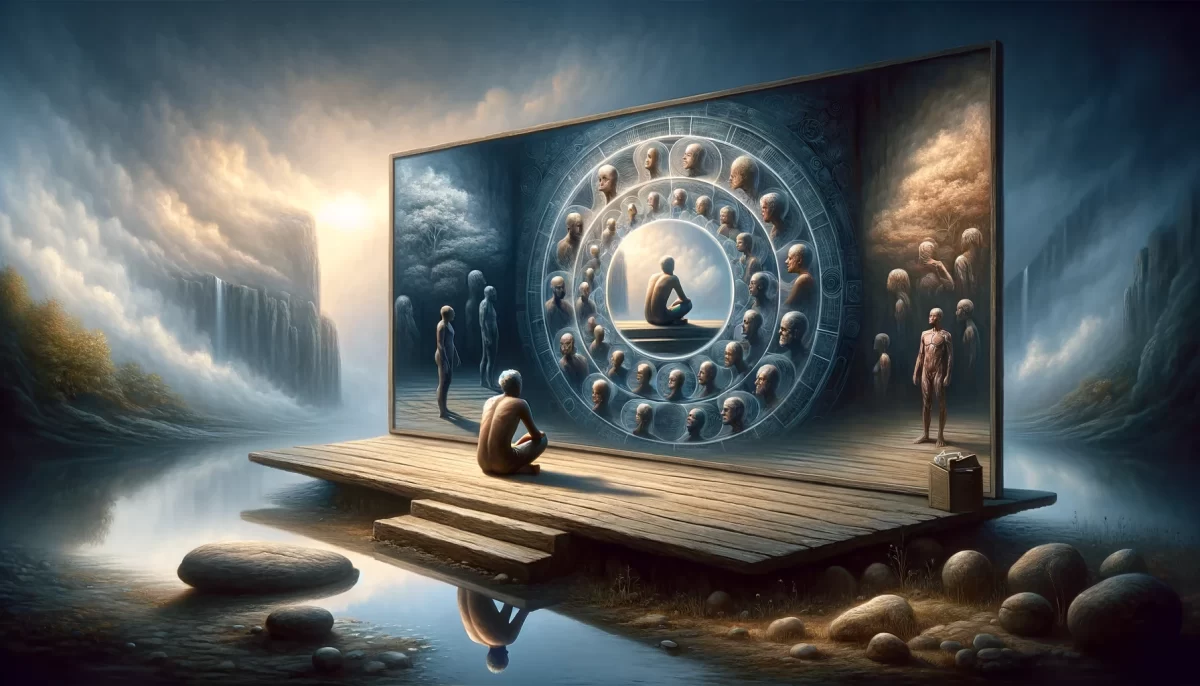

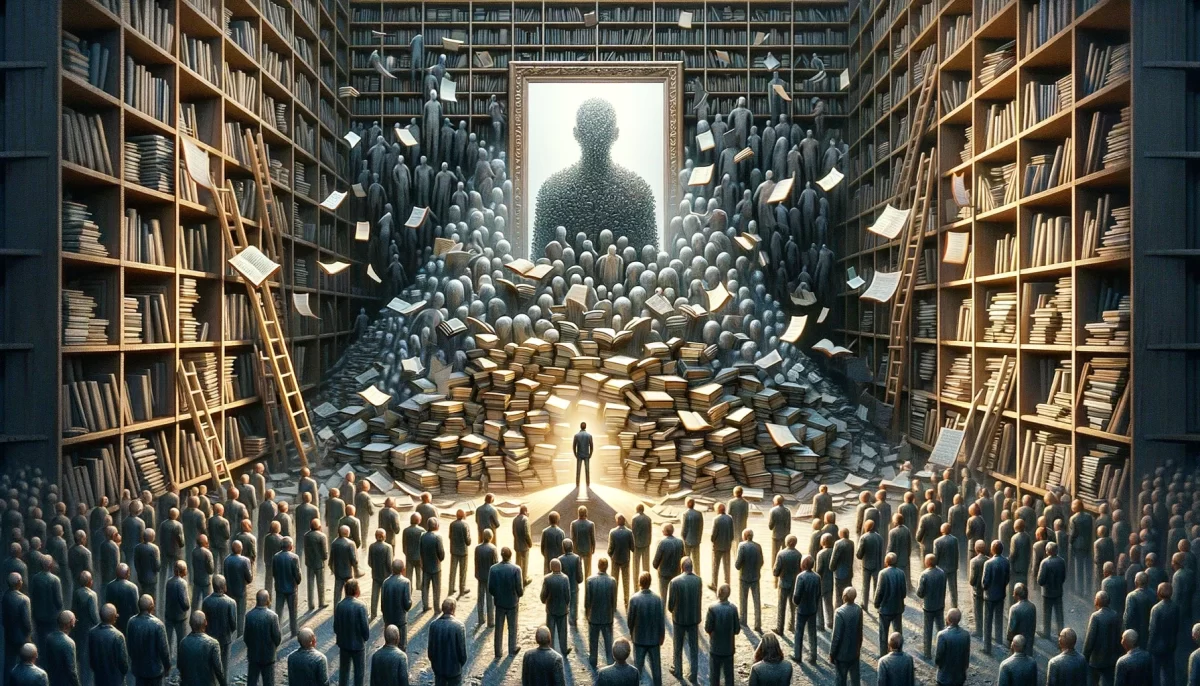
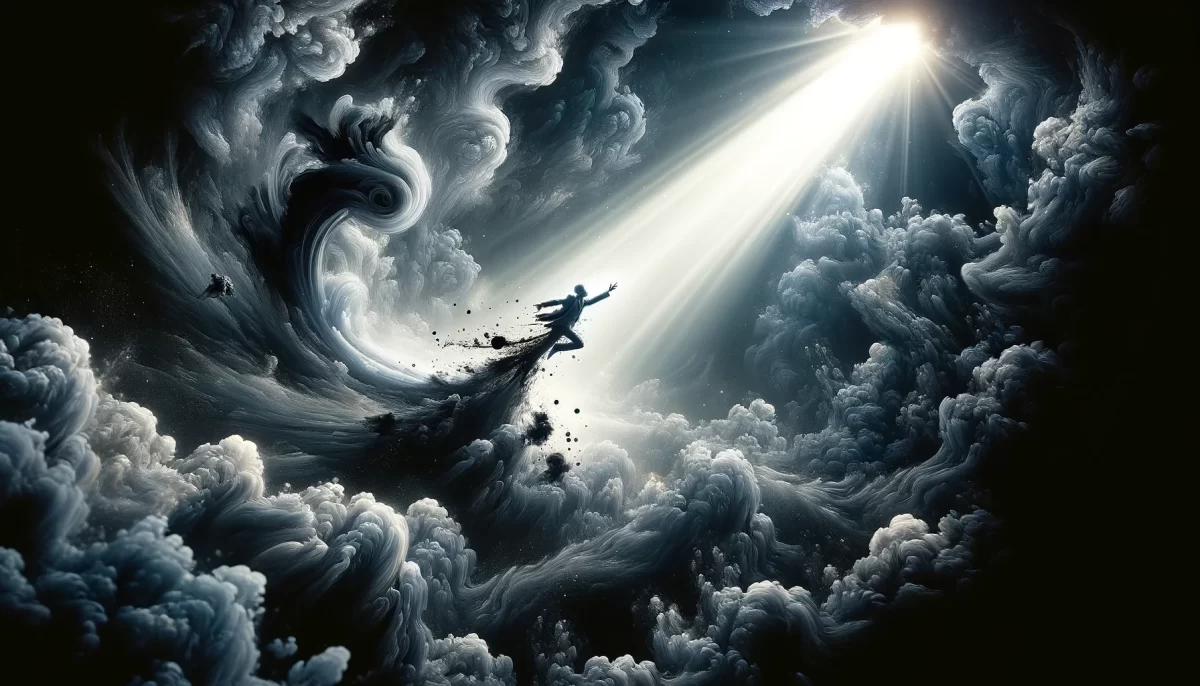

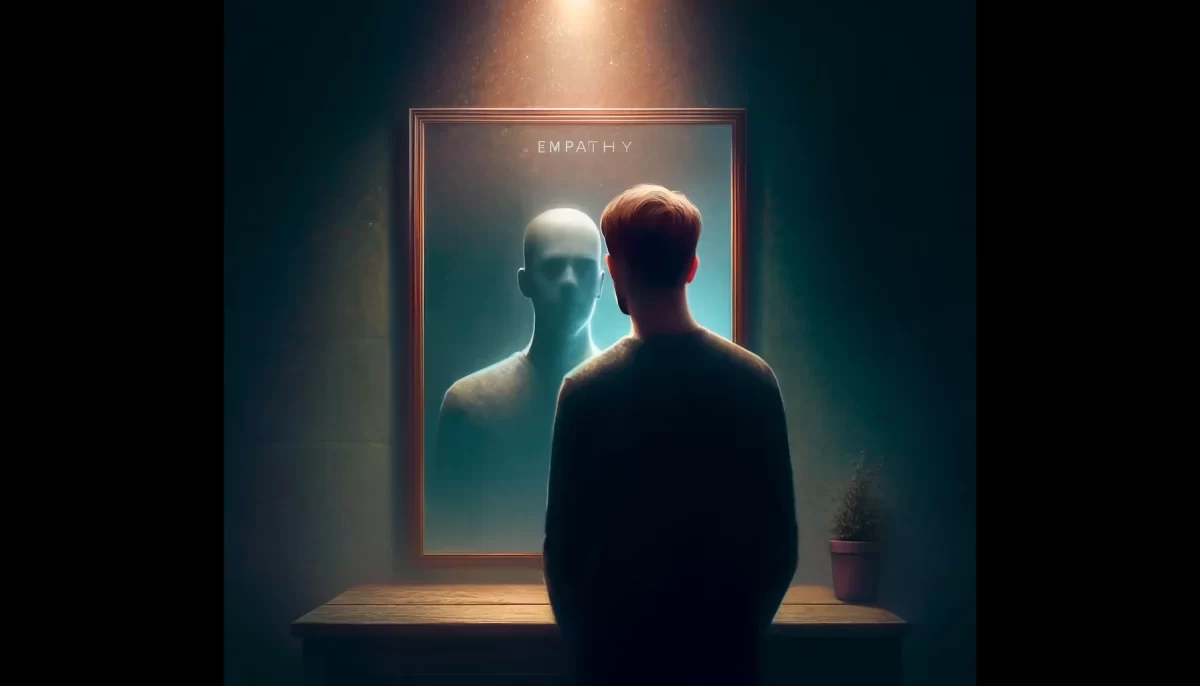
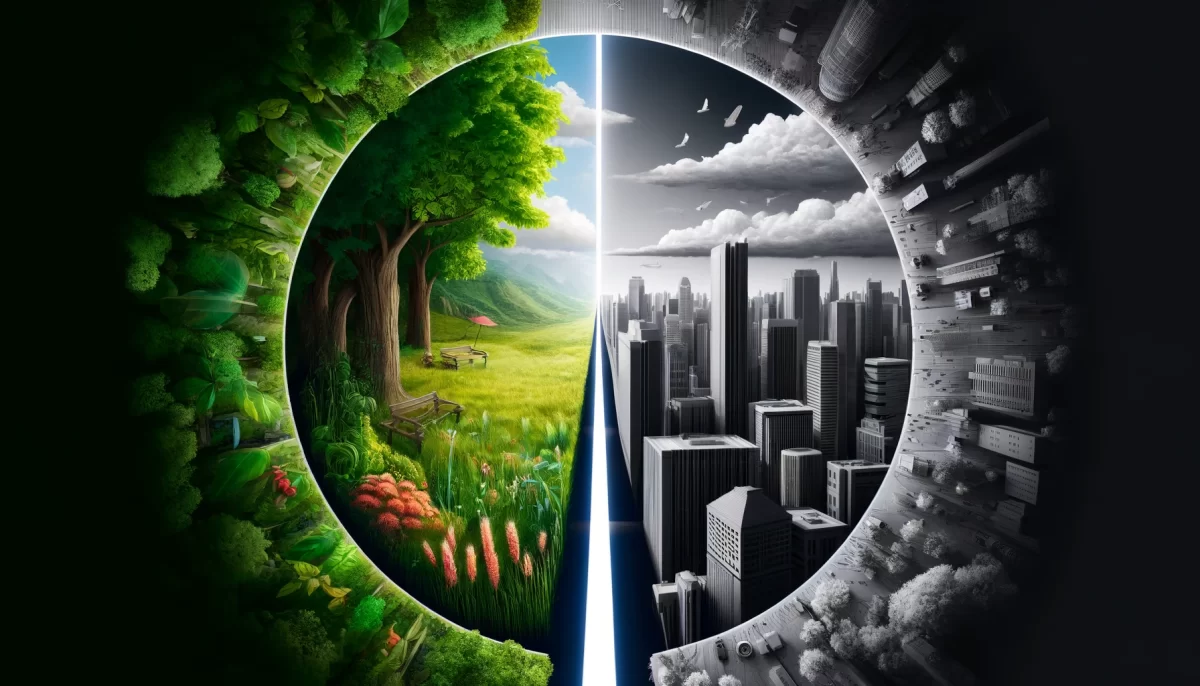

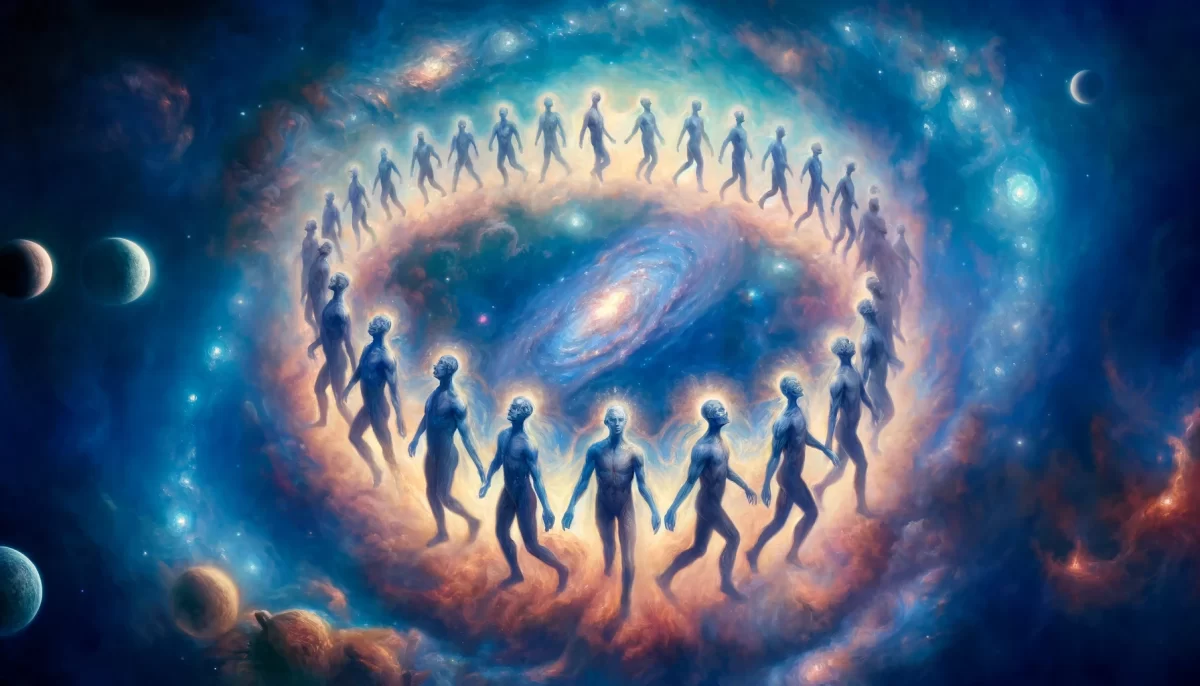
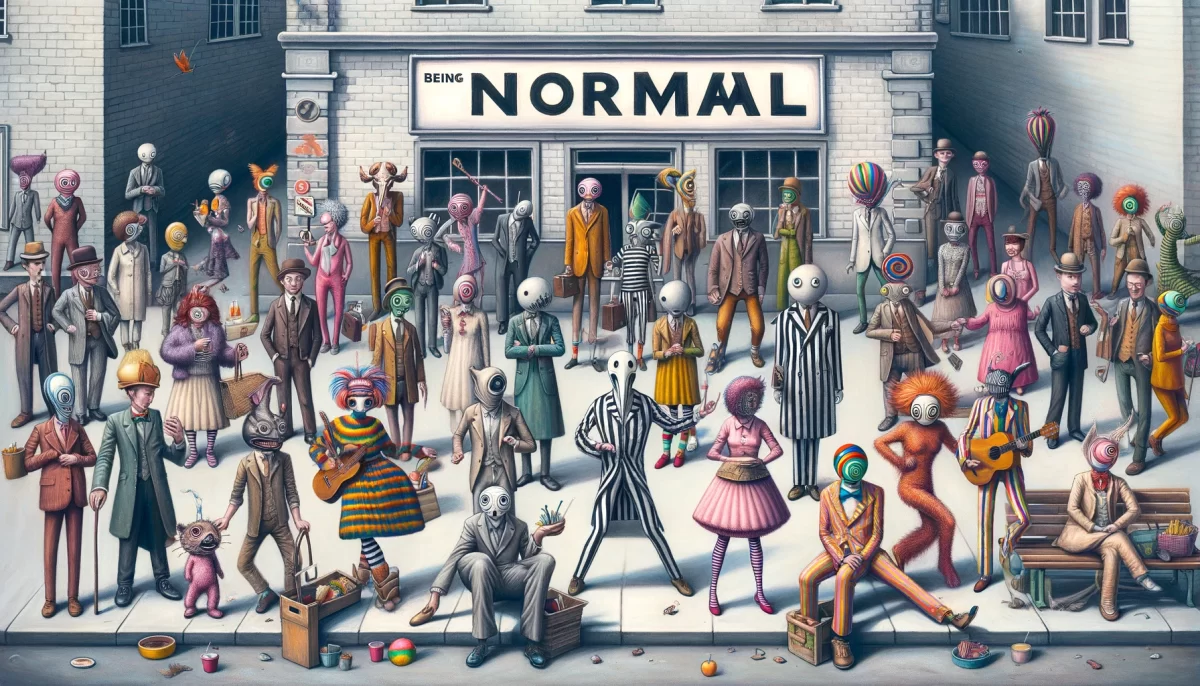

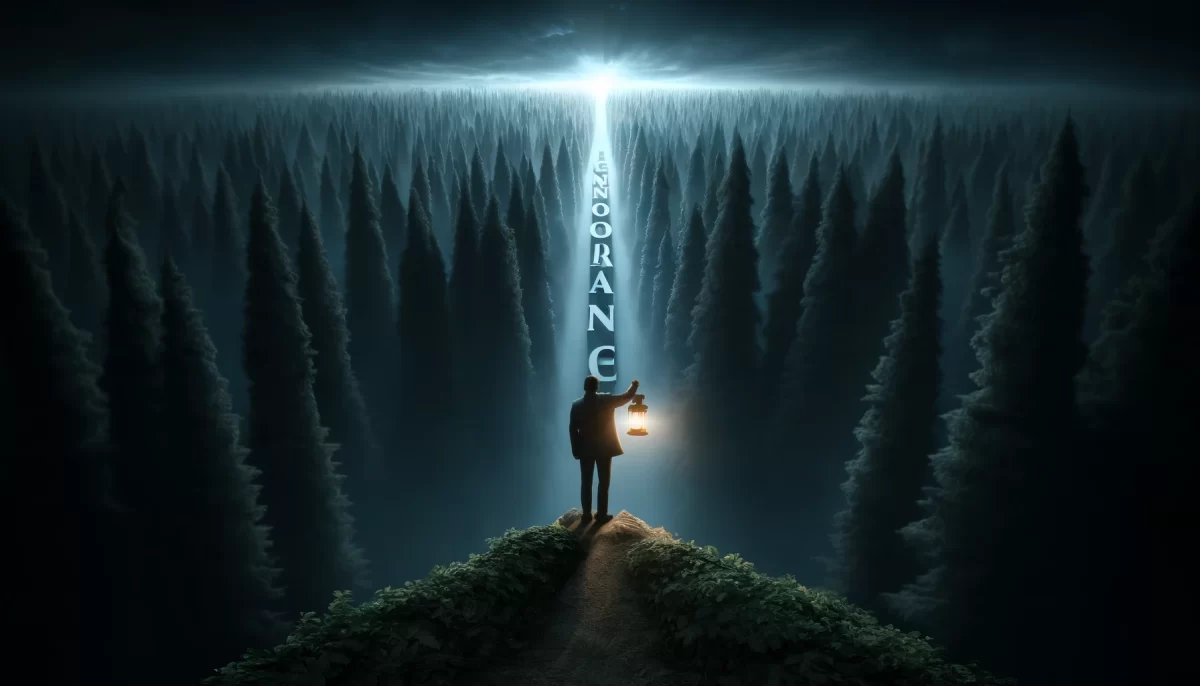
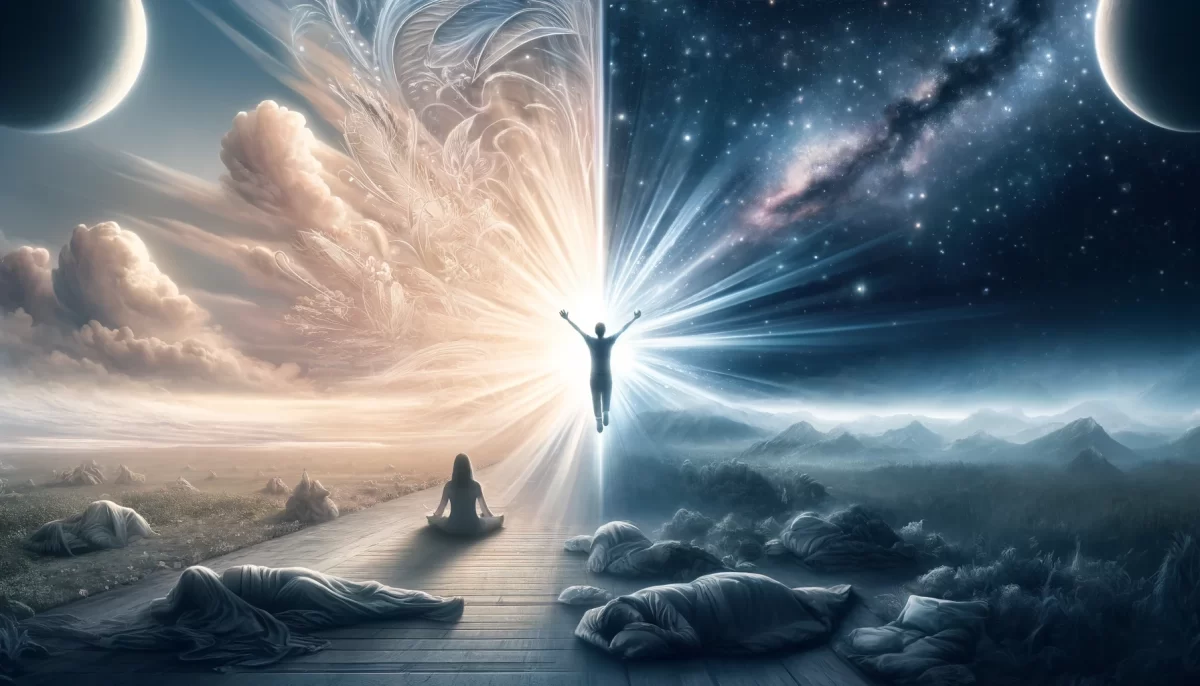



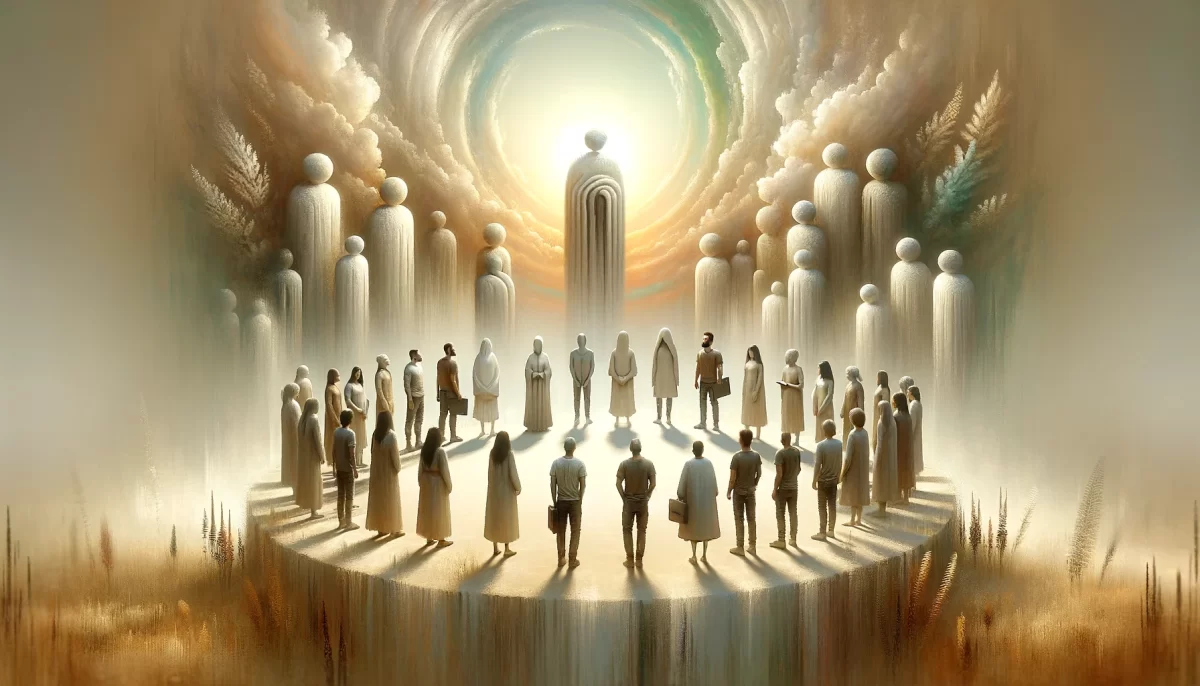
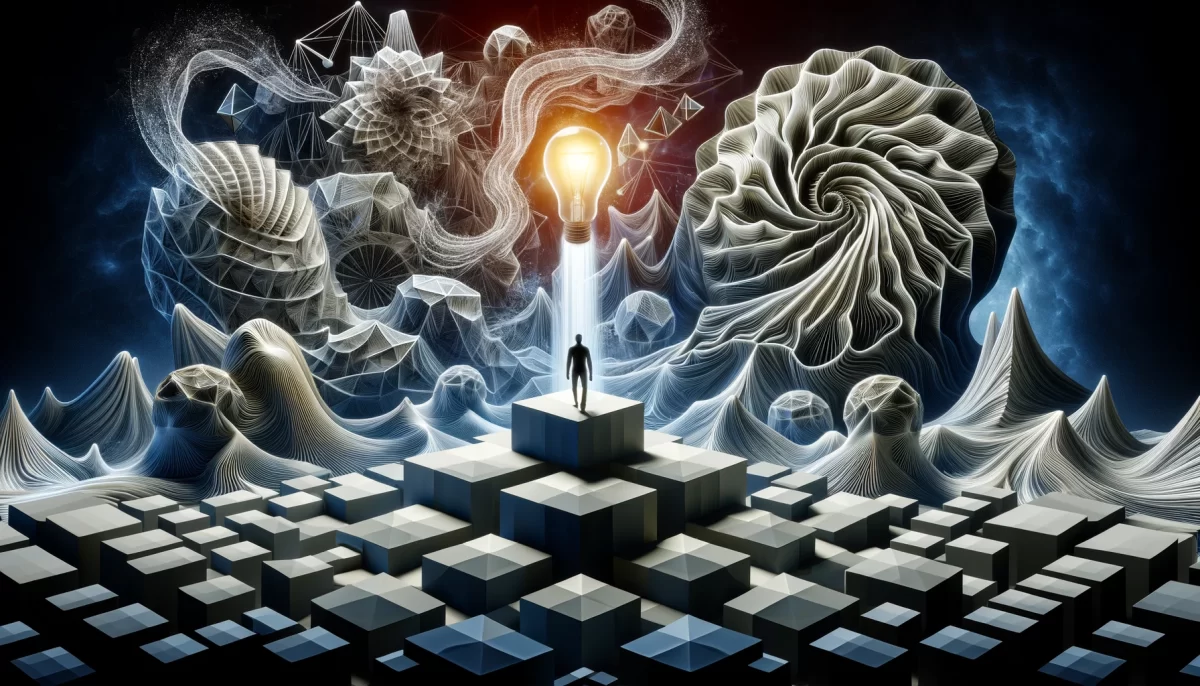


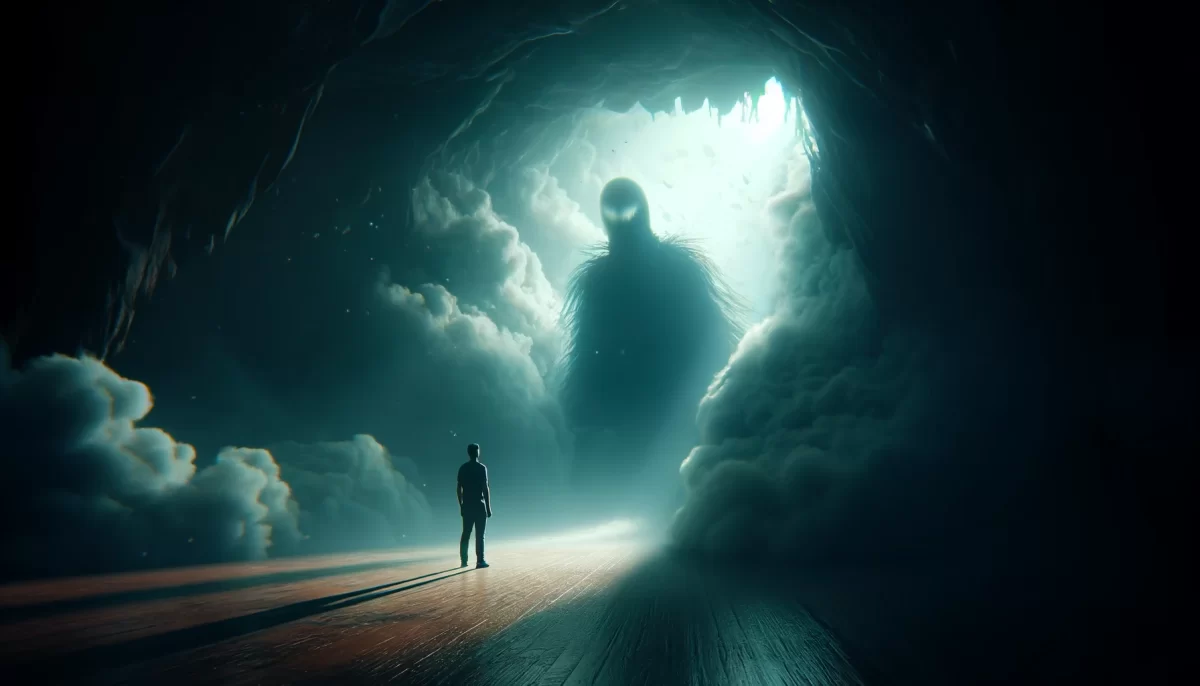

Leave a Reply